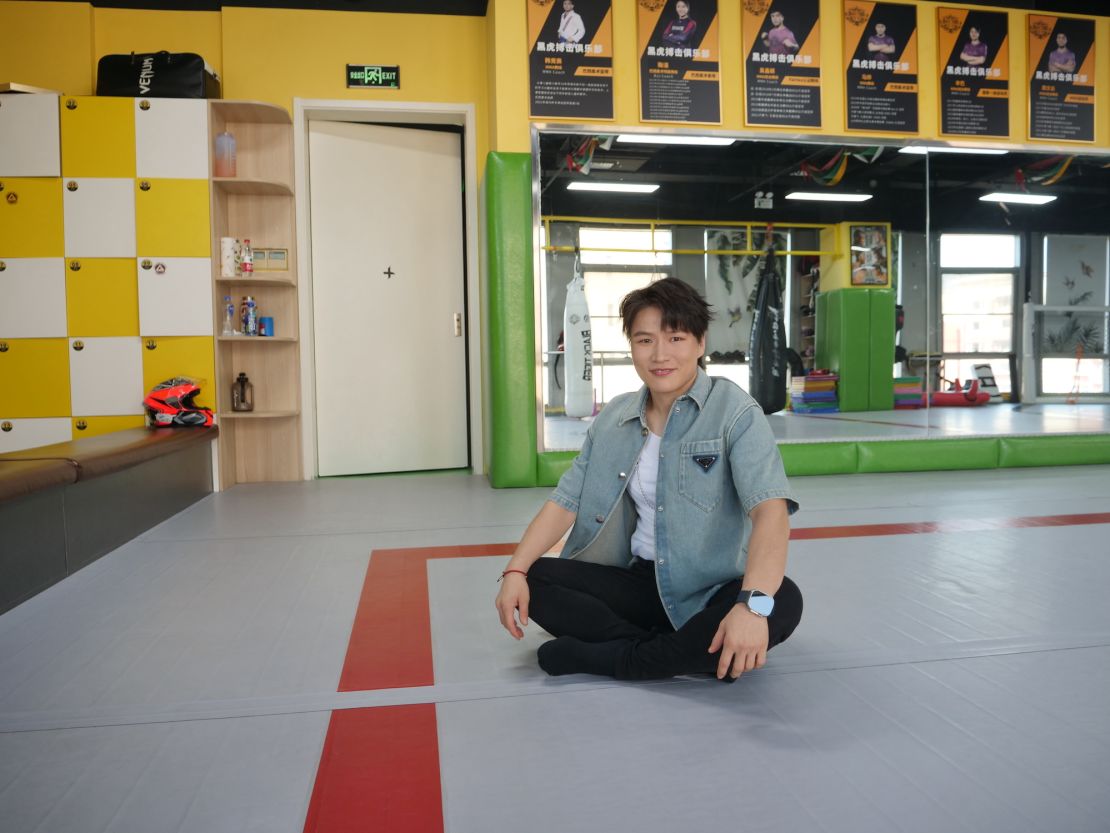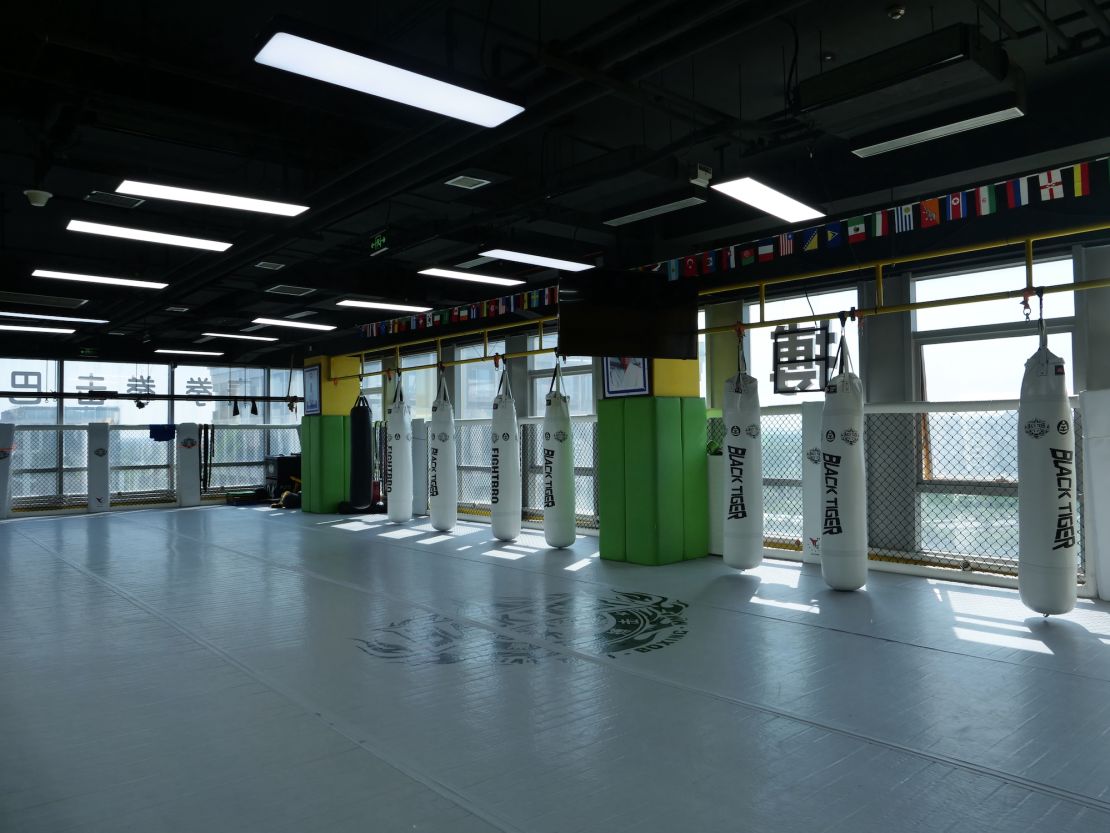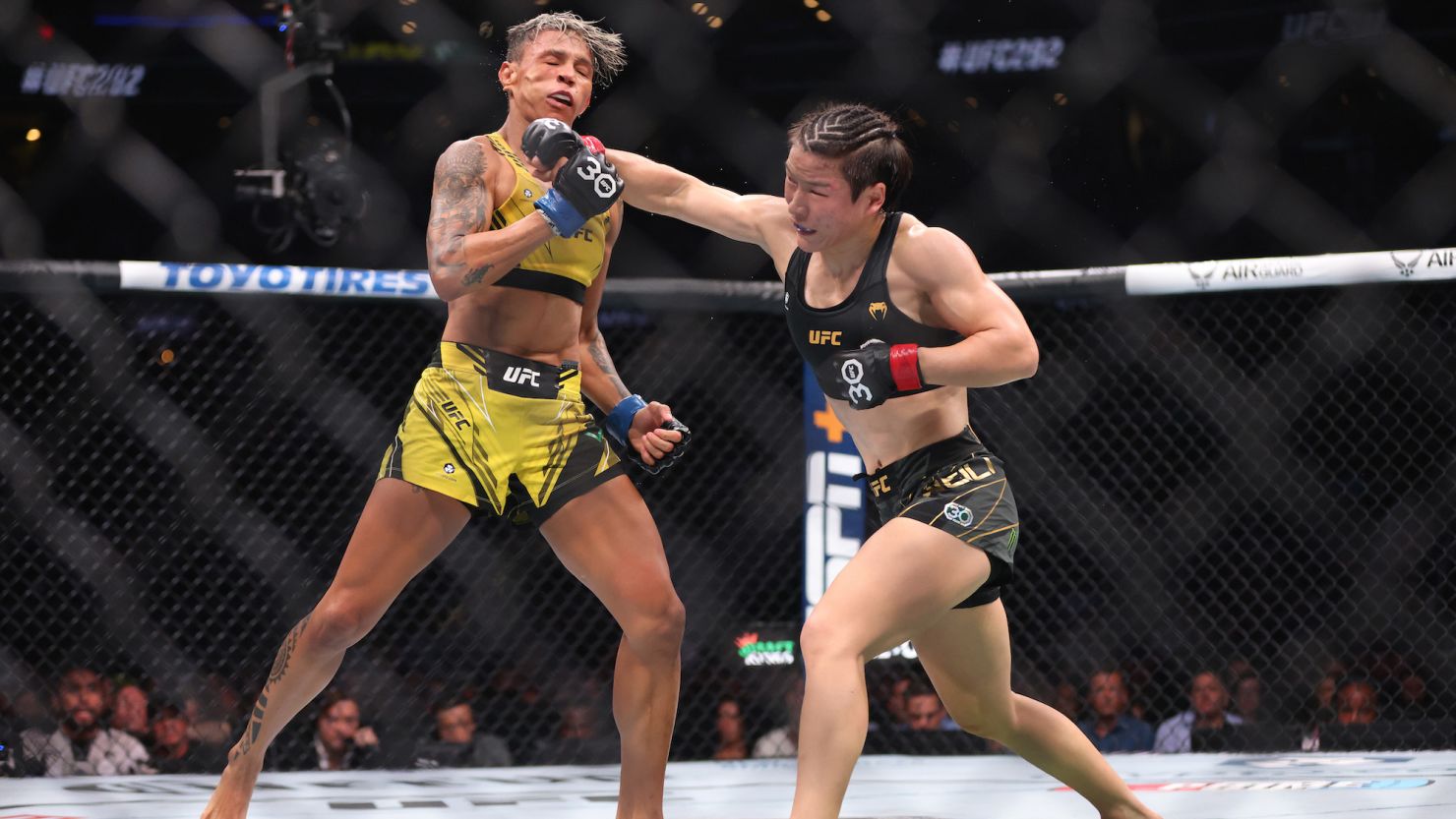A decade ago, Zhang Weili was handing out flyers to rushing commuters in front of her local subway station. Now she’s considered one of the best women’s mixed-martial arts (MMA) fighters in history.
Zhang, born in China’s northern Hebei province, is her country’s first and only champion in US-based promotion the Ultimate Fighting Championship (UFC).
The 34-year-old (professional MMA record: 24 wins, 3 losses) defended her strawweight title in a domination of Brazil’s Amanda Lemos in August, a performance that left UFC broadcaster Joe Rogan calling her “maybe the greatest of all time.”
While hyperbole is common in a sport rife with big egos and trash-talking, Zhang’s display clocked the largest-ever strike differential between opponents in any men’s or women’s UFC fight.
“What can I say about that fight? Our preparations and tactics were spot on,” Zhang told CNN from Black Tiger Fight Club in Beijing.
“(Lemos) was more tenacious than I thought and worthy of my respect. My elbow still hurts a bit in training.”
It was a fairytale return to the cage after Zhang re-claimed her title late last year. She had won the historic belt on home soil in 2019, before losing it via a devastating head-kick knockout two years later in a US vs China-fueled affair that left her feeling “pressured.”

Zhang’s opponent at the time, Lithuanian-American Rose Namajunas, had used the line “better dead than red” in an interview leading up to the fight – a phrase used by the US during the Cold War, with “red” a broad reference to communists. The narrative was further charged by the hostile Jacksonville, Florida, crowd on the day.
However, Zhang says she has never felt caught between China-US tensions and “feels the friendliness” wherever she is in the world.
The setback against Namajunas meant Zhang would have to claw her way back into title contention and global relevancy. Many felt her tenure at the top was over – a sentiment strengthened by an unsuccessful rematch with Namajunas seven months later.
“I used to be so afraid of losing my belt. But once you feel fear, you won’t be able to deploy your skills properly. You can’t pull the trigger,” explained Zhang, whose nickname is “Magnum.”
“I don’t feel that burden anymore.”
So what is the secret to her emphatic bounce-back?

Bruce Lee and meditation
Zhang has learned to block out pre-fight “distractions” via a combination of meditation and channeling her inner Bruce Lee.
“When I first started meditation, my back started cramping five minutes in,” said Zhang, who was introduced to the practice by coach Cai Xuejun.
“We live a busy life and rarely have time to sit down, close our eyes and talk to ourselves. We are constantly running around and busy with trivial things.
“How often do we have real conversations with ourselves? I never would. It’s about looking inside and finding a balance between moving and being static; excitement and calm.”
Just like how she strikes a balance between constant motion and staying still, Zhang also draws energy from both fire and water.
Everything is instinctual in the ring, Zhang said. “Just forget everything, everything about yourself, and react and use the techniques from your instincts. Like when you get burned by fire, you would instantly bounce back.”
To Zhang, that means letting go of the idea of oneself, and to achieve a state of “egolessness”. The way to do that is to learn to be “water”.
“Be water, my friend,” Zhang said, quoting the legendary martial artist-turned-actor Bruce Lee.
“You need to make a series of tactics that are not tactical. That is, you don’t have tactics, just like water, but you will fit into whatever shapes of container you are put into.”
Looking virtually invincible in the Octagon of late, Zhang says she has been conquering a very different battle: how to draw on eyebrows.

“Girls like to feel pretty, and I’m no exception,’ she said, gesturing to her face.
“See? I’m wearing makeup and had my hair done for this interview. Yesterday, I wore a skirt for the first time in 20 years. It felt refreshing.”
“Next I’m thinking about learning makeup,” Zhang laughed. “When I was little I called the girls to my place and I put lipsticks and eyebrows on them. But now I can’t even do my own makeup!”
As a child Zhang said she didn’t have the dolls to play with, but playing dress-up with her girl friends filled that void.
Zhang sees no contradiction in fighting both relentlessly in the cage while staying firmly in touch with her feminine side.
Her underlying message for Chinese women is to not be pigeonholed.
“Women shouldn’t be defined in the first place,” Zhang said. “Everyone is unique. We’re living in a very open society with many opportunities to do whatever you want.”






